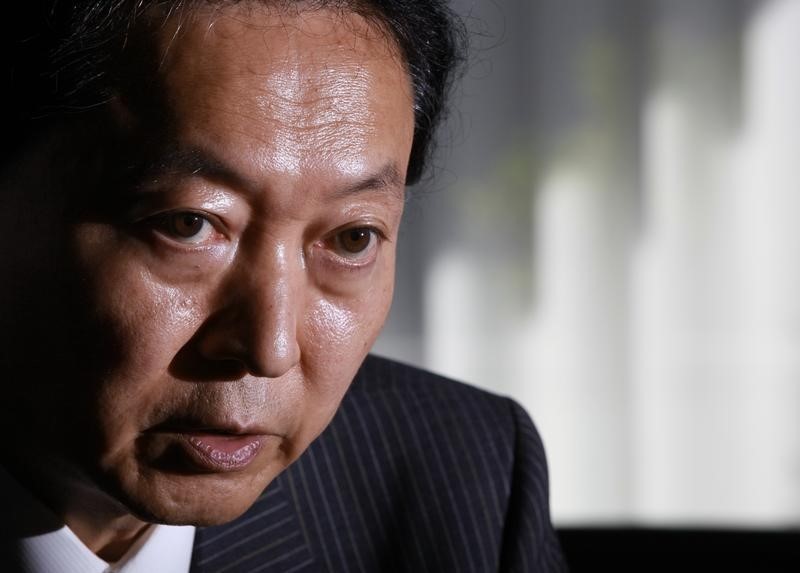TOKYO (Reuters) - The Japanese government sharply criticised a former prime minister on Wednesday for his visit to the Black Sea peninsula of Crimea, saying his action is at odds with Japan's stance on the Ukraine situation and calling him "grossly imprudent".
Japan disapproves of Russia's annexation of Crimea, and is concerned that the entry into the peninsula by former premier Yukio Hatoyama, who was travelling on a Russian visa, could be taken as a gesture in support of Russian control of the region.
Hatoyama said in Moscow before his entry into Crimea on Tuesday that he wanted to see for himself how Crimea residents were feeling about the annexation, Japan's Kyodo news agency said.
"Russia's annexation of Crimea is in violation of Ukraine's sovereignty and territorial integrity. Japan by no means approves of such attempts to change the status quo with force," Chief Cabinet Secretary Yoshihide Suga told reporters.
"The government has been asking him to think twice about the visit, but he went ahead and did it anyway. His behaviour is grossly imprudent and extremely regrettable for someone who experienced the office of prime minister."
Hatoyama's Crimea visit came a day after Prime Minister Shinzo Abe said in a joint news conference with German Chancellor Angela Merkel that any attempt to change the status quo in Ukraine with force should not be tolerated.
Hatoyama, once nicknamed "The Alien" for his quirky comments, led the Democratic Party of Japan (DPJ) to a landslide election victory in 2009 that ended a half-century of almost unbroken rule by the Liberal Democratic Party (LDP).
He stepped down nine month later, after raising and dashing hopes of people on Okinawa that a U.S. air base would be moved off the southern island. Abe's LDP regained power in 2012.
Even the DPJ is trying distance itself from the former premier.
"Nearly two years have passed since he left the Democratic Party of Japan and none of his behaviour including his action this time around concerns the DPJ," party secretary general Yukio Edano said in a statement.

"A former prime minister visiting Crimea on a Russian visa gives rise to misunderstanding on Japan's position and there is a risk that Russia could exploit it. He can hardly escape the charge of indiscretion."